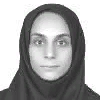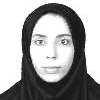International Journal of Information Engineering and Electronic Business (IJIEEB)
IJIEEB Vol. 4, No. 2, 8 Apr. 2012
Cover page and Table of Contents: PDF (size: 255KB)
Author(s)
Index Terms
Gait cycles, Hurst Exponent, Lyapunov Exponent, Nonlinear Dynamics, Poincare Plots
Abstract
Nonlinear dynamics has been introduced to the analysis of biological data and increasingly recognized to be functionally relevant. The aim of this study is to evaluate nonlinear and chaotic dynamics of gait signals. For this purpose, we analyzed gait data in ten healthy subjects who walked for an hour at their usual, slow and fast paces. Poincare plots, Hurst Exponents and the Lyapunov Exponents of gait signals were calculated. The results show that the Hurst Exponents are significantly increased during slow and fast paces. For all subjects, the Lyapunov Exponents are increased during normal gait, which indicates that signals are more chaotic. This can be due to decreased nonlinear interaction of variables in slow and fast paces. The finite values of Hurst Exponents and positive values of Lyapunov Exponents suggest that all of gait signals have low dimensional chaos. In addition, the complexity of signals is decreased during slow and fast gait. Results are useful for the early diagnosis of common gait pathologies.
Cite This Paper
Atefeh Goshvarpour, Ateke Goshvarpour, "Nonlinear Analysis of Human Gait Signals", International Journal of Information Engineering and Electronic Business(IJIEEB), vol.4, no.2, pp.15-21, 2012. DOI:10.5815/ijieeb.2012.02.03
Reference
[1]Gage, J. R., Minnesota, ST. P., Deluca, P. A., Renshaw, T.S., 1995. Gait Analysis: Principles and Applications. The Journal of Bone and Joint Surgery, 77-A (10), 1607-1623.
[2]Gage, J. R., 1991. Gait Analysis in Cerebral Palsy. London. MacKeith Press.
[3]Hausdorff J.M. 2009. Gait dynamics in Parkinson's disease: Common and distinct behavior among stride length, gait variability, and fractal-like scaling. Chaos. 19(2), 026113.
[4]Hausdorff J.M., Peng C.K., Ladin Z., Wei J.Y., Goldberger A.L., 1995. Is walking a random walk? Evidence for long-range correlations in stride interval of human gait. J Appl Physiol, 78, 349-358.
[5]Hausdorff J.M., Zemany L., Peng C.-K., Goldberger,A.L. 1999. Maturation of gait dynamics: stride-to-stride variability and its temporal organization in children. J. Appl. Physiol. 86, 1040.
[6]West B.J., Griffin L. 1999. Allometric control, inverse power laws and human gait. Chaos, Solitons & Fractals. 10, 1519–1527.
[7]West B.J., Griffin L. 1998. Allometric control of human gait. Fractals. 6, 101–108.
[8]Collins J.J., Richmond S.A., 1994, Hard-wired central pattern generators for quadrupedal locomotion. Biological-Cybernetics, 71, 375–385.
[9]Henry A., Lovell N., 1999. Nonlinear dynamics time series analysis. in: M. Akay (Eds.), Nonlinear biomedical signal processing - dynamic analysis and modeling, John Wiley & Sons-IEEE Press, Hanover, New Hampshire, pp. 1-39.
[10]Goshvarpour A., Goshvarpour A., Rahati S., Saadatian V., Morvarid M. 2011. Phase space in EEG signals of women referred to meditation clinic. JBiSE, 4, 479-482.
[11]Goshvarpour A., Goshvarpour A. 2012. Classification of heart rate signals during meditation using Lyapunov exponents and Entropy, I.J. Intelligent Systems and Applications, 4(2), 35-41.
[12]Goshvarpour A., Goshvarpour A. 2012. Chaotic Behavior of Heart Rate Signals during Chi and Kundalini Meditation, I.J. Image, Graphics and Signal Processing, 4(2), 23-29.
[13]Campbell L., Bobick A., 1995. Recognition of Human Body Motion using Phase Space Constraints. Fifth International Conference on Computer Vision, Cambridge, MA.
[14]Van Emmerik, R.E.A., Rosenstein, M.T., McDermott, W.J., Hamill, J., 2004. Nonlinear Dynamical Approaches to Human Movement, Journal of Applied Biomechanics, 20.
[15]West, B. J., Scafetta, N., 2003. Nonlinear dynamical model of human gait. Physical Review E, 67.
[16]Dingwell, J.B., Cusumano, J.P., 2000. Nonlinear Time Series Analysis of Normal and Pathological Human Walking. Chaos, 10 (4), 848-863.
[17]Labini F.S., Meli A., Ivanenko Y.P., Tufarelli D. 2012. Recurrence quantification analysis of gait in normal and hypovestibular subjects. Gait & Posture, 35(1), 48-55.
[18]Chang M.D., Shaikh S., Chau T. 2009. Effect of treadmill walking on the stride interval dynamics of human gait. Gait & Posture, 30 (4), 431-435.
[19]Scafetta N., Griffin L., West B.J. 2003. Holder exponent spectra for human gait. Physica A, 328, 561- 583.
[20]Wolf, A., Swift, J.B., Swinney, H.L., Vastano, J.A., 1985. Determining Lyapunov exponents from a time-series. Physica D. 16285-317.
[21]Kantz, H., Schreiber, T., 1997. Nonlinear Time Series Analysis. Cambridge University Press, Cambridge, United Kingdom.
[22]Hausdorff, J.M., Purdon, P.L., Peng, C.K., Ladin, Z., Wei, J.Y., Goldberger A.L., 1996. Fractal dynamics of human gait: stability of long-range correlations in stride interval fluctuations. J Appl Physiol 80, 1448-1457.
[23]Karmakar, C., Khandoker, A., Gubbi, J., Palaniswami, M., 2009. Complex correlation measure: a novel descriptor for Poincare plot. Biomed. Eng. 8, 17.
[24]Goshvarpour, A., Goshvarpour, A., Rahati, S., 2011. Analysis of lagged Poincare plots in heart rate signals during meditation. Digital Signal Processing, 21, 208–214.
[25]Brennan M., Palaniswami M., Kamen P. 2001. Do existing measures of Poincare plot geometry reflect nonlinear features of heart rate variability? IEEE Trans Biomed Eng, 48, 1342-1347.
[26]Hurst H.E., Black R.P., Simaika Y.M. 1965. Long-term storage: an experimental study Constable, London.
[27]Roschke J., Fell J., Beckmann P. 1993. The calculation of the first positive Lyapunov exponent in sleep EEG data, Electroencephalogram. Clin Neurophysiol, 86, 348-352.
[28]Haykin S., Li X.B. 1995. Detection of signals in chaos, Proc IEEE, 83(1), 95–122.
[29]Abarbanel H.D.I., Brown R., Kennel M.B. 1991. Lyapunov exponents in chaotic systems: their importance and their evaluation using observed data, Int J Mod Phys B, 5(9), 1347–1375.
[30]Costa M., Peng C-K., Goldberger A.L., Hausdorff J.M. 2003. Multiscale entropy analysis of human gait dynamics. Physica A, 330, 53-60.
[31]Khandoker A.H., Palaniswami M., Begg R.K. 2006. Comparison of Approximate Entropy Measure and Poincare Plot Indexes for the Study of Gait Characteristics in the Elderly. ICINCO, 144-151.
[32Stansfield B.W., Hillman S.J., Hazlewood M.E., Robb J.E. 2006. Regression analysis of gait parameters with speed in normal children walking at self-selected speeds. Gait & Posture, 23, 288–294.

